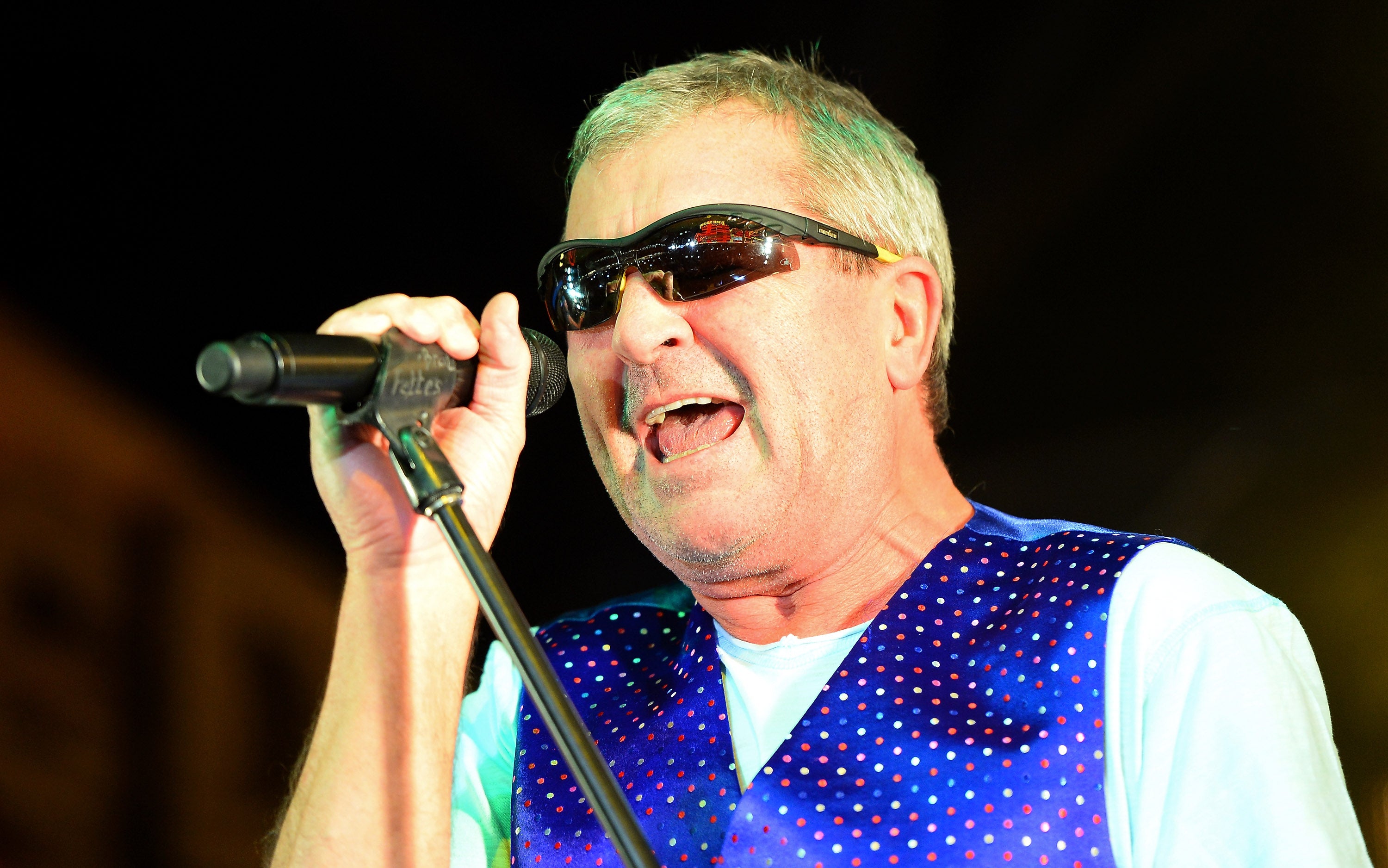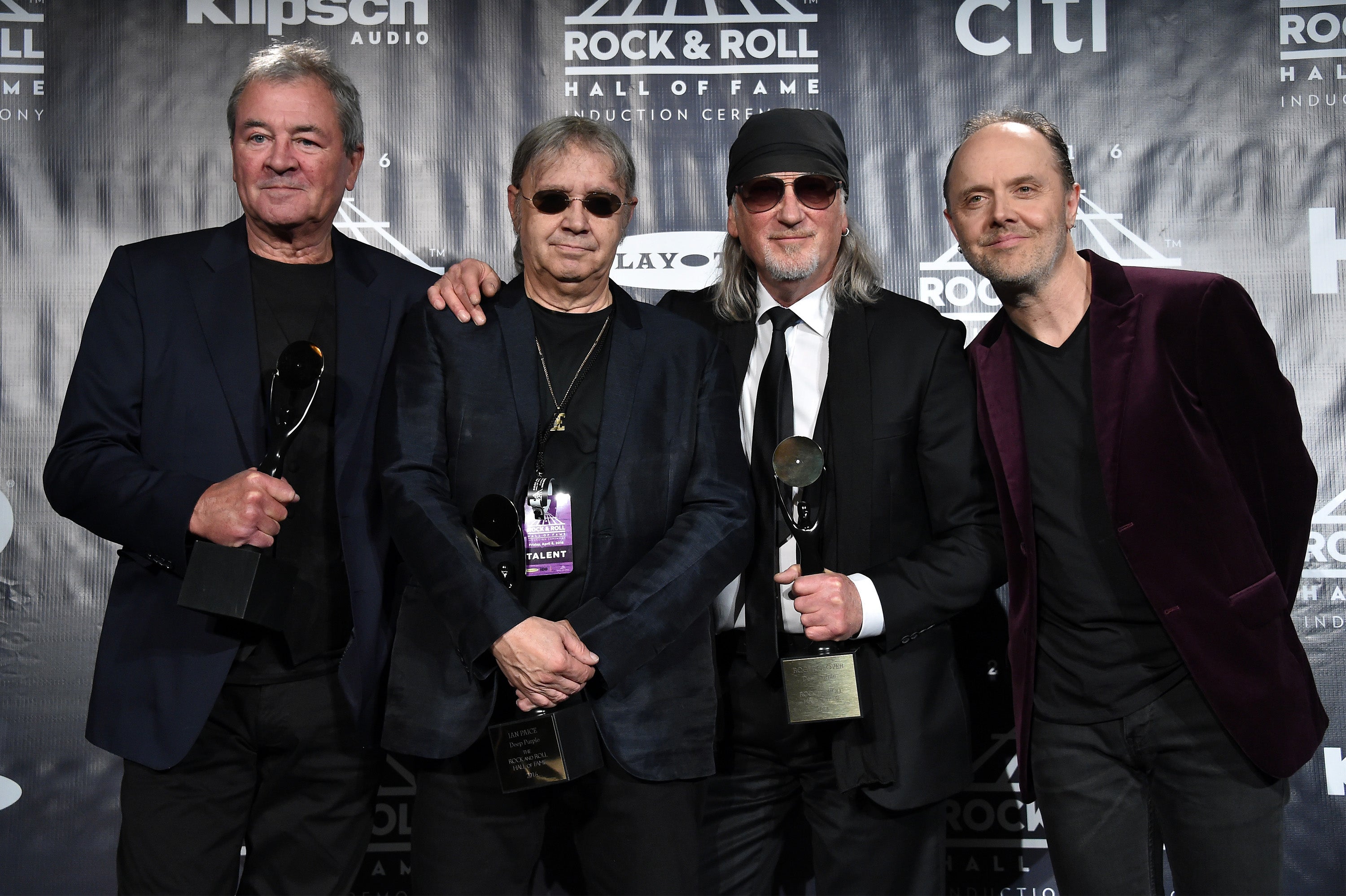Deep Purple’s Ian Gillan recalls menacing response from manager when he asked for money
‘I had never heard anything so horrible in my life,’ the singer said

Your support helps us to tell the story
From reproductive rights to climate change to Big Tech, The Independent is on the ground when the story is developing. Whether it's investigating the financials of Elon Musk's pro-Trump PAC or producing our latest documentary, 'The A Word', which shines a light on the American women fighting for reproductive rights, we know how important it is to parse out the facts from the messaging.
At such a critical moment in US history, we need reporters on the ground. Your donation allows us to keep sending journalists to speak to both sides of the story.
The Independent is trusted by Americans across the entire political spectrum. And unlike many other quality news outlets, we choose not to lock Americans out of our reporting and analysis with paywalls. We believe quality journalism should be available to everyone, paid for by those who can afford it.
Your support makes all the difference.Ian Gillan has revealed there were financial tensions between the members of Deep Purple and their manager John Coletta in the early years of their career.
Deep Purple are one of the most successful British rock bands of all time, with worldwide sales of over 100 million albums. Coletta managed the band, alongside London clothier Tony Edwards, from 1968 until 1976 – when the group split up.
The band’s frontman, 78, revealed he and bassist Roger Glover were so poor they had to share one set of clothes when they joined the band in 1969. But when the singer went to Coletta’s office to ask for an advance to buy something to wear, he was met with a hostile response.
Speaking to The Times, Gillan, who grew up on a council estate in Hounslow, said: “The response from our manager John Coletta was, ‘I knew you were trouble the moment I set eyes on you.
“‘If you ask me for money one more time, I’ll throw you back in the gutter where I found you.’”
The Deep Purple frontman admitted Coletta’s words had remained “etched onto the back of my skull” for decades. “I had never heard anything so horrible in my life,” he said. “If you can ride through crap like that and come out the other side, you can cope with most things.”
Gillan said sharing one set of clothes with Glover meant they “couldn’t go out at the same time” and the bassist “didn’t even own a pair of shoes”. Often, they couldn’t even afford food: “It’s not unknown for me to steal a handful of dog biscuits to get through the day,” Gillan said.
Reflecting on the band’s financial situation in 1969, Gillan added: “You’ve got to remember that gigs were much smaller back then.

“On top of that you had 75 per cent income tax in the Seventies and what you’re left with, once you’ve paid managers, agents and roadies, is a couple of hundred quid a week.”
“Purple is not mainstream – never has been, never will be,” he continued. “And if we were worried about the money we would have done something else. If I had enough to buy a beer and do what I wanted to do, I would be happy.”
Enjoy unlimited access to 100 million ad-free songs and podcasts with Amazon Music
Sign up now for a 4 month free trial (3 months for non-Prime members)
Enjoy unlimited access to 100 million ad-free songs and podcasts with Amazon Music
Sign up now for a 4 month free trial (3 months for non-Prime members)
Gillan left Deep Purple in 1973, formed his own self-made band and joined Black Sabbath for a brief period in 1983, before returning to Deep Purple in 1984. He was fired from the band in 1989, before they reunited in 1992.
On Friday, 19 July, the band will release their latest album =1, which follows on from Whoosh! In 2020, inFinite in 2017 and NOW What?! in 2013.
Join our commenting forum
Join thought-provoking conversations, follow other Independent readers and see their replies
Comments